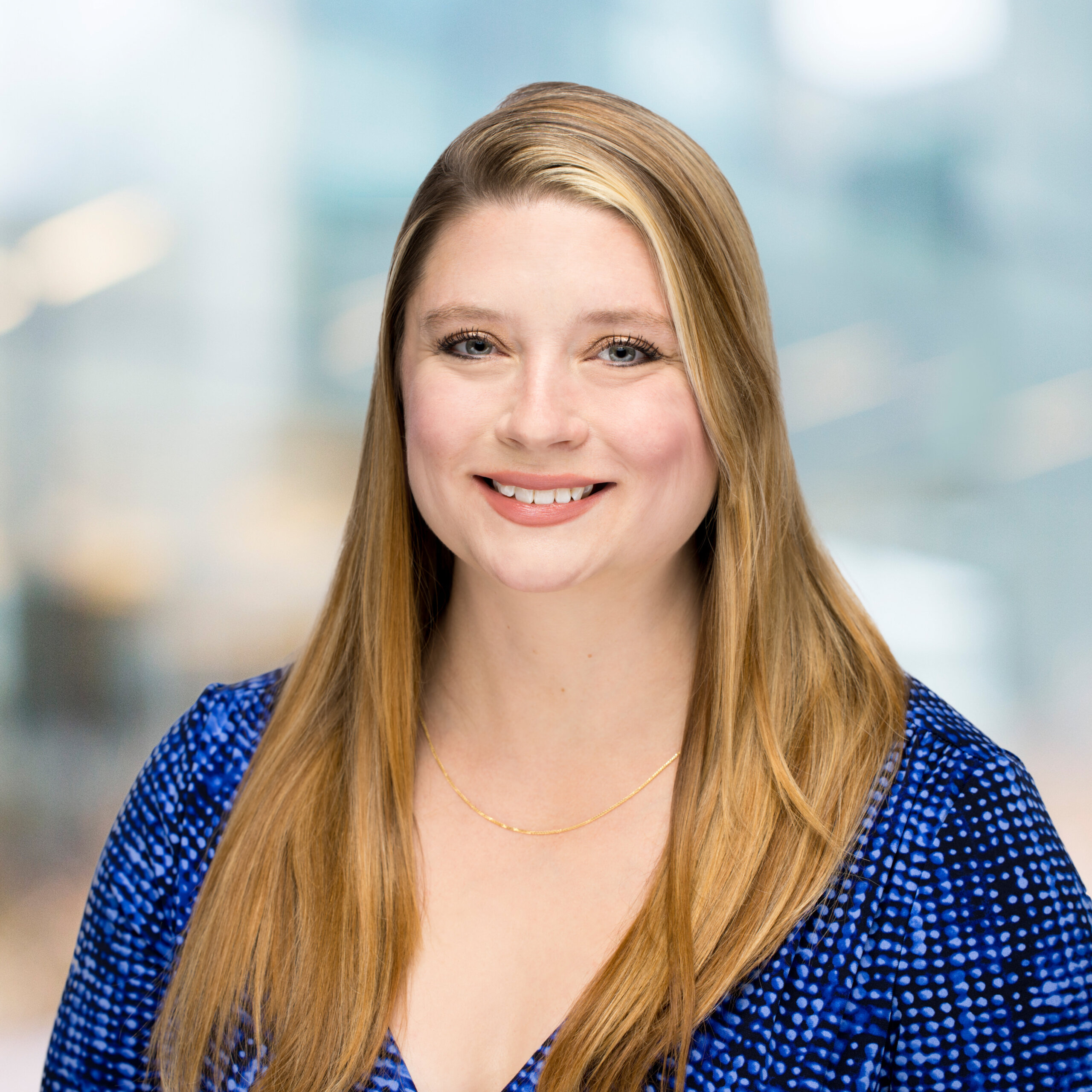
In this issue, we feature an editorial by Ashley Farly, Programme Officer of Knowledge and Research Services at the Bill & Melinda Gates Foundation. As the Foundation recently announced its new Open Access (OA) Policy, Ashley shares her insights on what the Foundation has learned on OA over the last decade.
A Decade of Open Access Policy: Our Learnings
The Bill & Melinda Gates Foundation will soon celebrate a decade of Open Access Policy. In this policy space, it feels as though everything is constantly changing, yet simultaneously remains unchanged. I believe this is why it’s such an interesting focus area and I’m grateful to spend my career championing for change.
The Foundation recently announced their open access policy refresh set to take effect from 1 January 2025. In taking time to think through what an Open Access Policy refresh could look like, the Foundation reviewed internal data, learnings, and external research to inform our thinking.
Here are what I think are the most important takeaways:
- The academic publishing machine is slow to change – experimentation is difficult, yet the problems require urgent solutions.
Due to the academic incentive system researchers are reluctant to participate in new or novel publishing models or platforms. Similarly, due to legacy systems, such as indexing, it can be hard for publishing alternatives to take root and grow.
- Policy does drive the behavior change of researchers – less so for publishers.
I think this is the way it should be, but we should be very careful in thinking that policy can change business models. What we pay for is what we value.
- Focusing solely on the journal version of record is impeding opportunities for a better model – it then becomes even more important to support multiple routes to achieving open access. For the career incentives to change emphasis on journal reputation measured in terms of journal impact factor has to be deprioritized. This is the only way to avoid paying steeply for journal brand or prestige. Otherwise, we are quickly solidifying a system where only the privileged will achieve open access at any and all costs. On the other hand, Preprints are journal-independent: for the author the research is evaluated on its own merits and for the reader the responsibility is on them to evaluate that research.
- Authors funded by grants aren’t always sensitive to prices, particularly when the grants do not put a cap on Article Processing Charges (APC), and more so because their careers depend on being published. They may also be unaware of the nuance and impacts of commercial versus not-for-profit publishing, thus inadvertently perpetuating an expensive and inequitable system. From a service standpoint, paying APCs on behalf of our authors from a central fund was helpful, but it also created an environment where authors do not have to consider the cost at all.
While discussing policy refresh, it is crucial to note that we don’t see this as the perfect Open Access Policy, but it marks a critical step towards unlocking future potential. We recognize that there is a cost to disseminating, marketing, and preserving knowledge in the journal format but these costs remain non-transparent, continually increasing, and tied too intrinsically to journal brand. It’s been hard for me to see what value and service we get when we pay an APC. With preprints, we are alleviated from the above issues and can begin to focus on what is most critical for advancing research.
Together, we’ve ignited tangible change in scholarly publishing, but our journey towards equity in knowledge remains unfinished. As part of our mission to promote equity for all people around the world, we must work toward a more inclusive future in research dissemination.

Ashley Farley, Programme Officer of Knowledge & Research Services – Bill & Melinda Gates Foundation
In her capacity, as Programme Officer of Knowledge & Research Services, Ashley leads the foundation’s Open Access Policy’s implementation and associated initiatives. This includes leading the work of Gates Open Research, a transparent and revolutionary publishing platform. Other core activities involve supporting the strategic and operational aspects of the foundation’s library. This work has sparked a passion for open access, believing that freely accessible knowledge has the power to improve and save lives.
Over the past decade Ashley has worked in both academic and public libraries, focusing on digital inclusion and facilitating access to scholarly content. She completed her Masters in Library and Information Sciences through the University of Washington’s Information School.
The Open Access rising tide: Gates Foundation ends support to Article Processing Charges
For Björn Brembs and Luke Drury, the recent announcement by the Bill & Melinda Gates Foundation of their new Open Access Policy signals a growing consensus regarding the imperative to transform the scholarly publishing landscape.
American Physiological Society Adopts Subscribe to Open Model to Transition to Open Access
The American Physiological Society (APS) has announced the shift towards open-access publishing by adopting the Subscribe to Open (S2O) model for 10 of its leading research journals starting in 2025. This strategic move aims to enhance the dissemination of research on physiology globally without imposing additional costs on authors. By partnering with the library community, APS intends to make scientific discoveries more accessible and accelerate progress in understanding life and improving health worldwide.
Australia’s Push for Open Access via a Centralized Digital Library
Academics highlight the urgent need for Australia to address research journal gatekeeping to foster innovation, with the nation’s open access reform lagging. While Australia produced over 2m research articles over time, about 43% are available as open access. The country has introduced a pioneering open-access model offering free research access via a centralized digital library to address the issue. Amidst a global publishing industry dominated by high-profit margins and restricted access, this move seeks to dismantle barriers to knowledge dissemination.
The Netherlands Launches Diamond Open Access Initiative for Sustainable Scholarly Publishing
The Netherlands has launched the “Enhancing Diamond Open Access in the Netherlands” project to promote and strengthen non-profit, scholarly-, and library-led publishing in line with the report “Versterking ondersteuning van diamond open access in Nederland” by the Universities of the Netherlands (UNL). This move aligns with the goals set in the Ambition Document National Plan Open Science 2030, focusing on investments in open infrastructure to foster a more inclusive and scholar-led scholarly communication ecosystem. Leading by Erasmus University Rotterdam, in collaboration with UKB and UNL, the project aims to strengthen Diamond Open Access (DOA) through an integrated approach, including establishing a national expertise center, enhancing capacity within DOA publishing platforms, and implementing a monitoring system for DOA.
University of Zurich Withdraws from THE Rankings
The University of Zurich (UZH) has decided to stop providing data for the Times Higher Education (THE) ranking, citing the restrictive nature of such evaluations and prioritizing measurable outputs over the quality of content. This move aligns with UZH’s long-standing commitment to fostering an open science culture that values transparency, reproducibility, and impactful research over mere quantitative achievements. By signing the Coalition of Agreement on Reforming Research Assessment (CoARA), UZH has adopted a shift in academic evaluation towards recognizing the intrinsic quality of research, advocating for a reevaluation of how academic success is measured.
The BMJ Leads the Way in Research Transparency with Mandatory Data and Code Sharing
Starting May 1, 2024, The BMJ will enforce a new policy requiring authors to deposit all trial data in a publicly accessible repository and submit analytical codes for publication, aiming to enhance transparency and scrutiny in medical research. This move extends the journal’s commitment to open science, allowing for greater examination of research methodologies and results, thereby fostering trust and collaboration within the scientific community. The BMJ’s initiative marks a significant step towards prioritizing public good and integrity in academic and clinical research.
MIT OpenCourseWare: Revolutionizing Global Education through Free Online Courses
MIT OpenCourseWare’s YouTube channel offers free educational content in engineering, psychology, computer science, and more, providing millions worldwide the opportunity to acquire new skills. Launched in 2001 and now the largest .edu YouTube channel with over 5 million subscribers, OpenCourseWare embodies MIT’s commitment to accessible education, inspiring learners to explore new fields and even initiate educational projects. This digital resource continues to make high-quality education accessible to all, upholding the legacy of great teaching and fostering a global community of learners.
ERC Introduces New Application Process to Promote Inclusive Research Excellence
The European Research Council (ERC) has updated its application process to accommodate diverse research career paths better, aiming for a more inclusive assessment of excellence. The shift moves towards a narrative CV format and project-focused evaluation, moving away from the traditional emphasis on publication metrics and career profiles. This change, supported by the European Commission and over 500 signatories under the Coalition for Advancing Research Assessment (CoARA), is designed to level the playing field for researchers from various backgrounds and institutions. The reform, praised by the research community, aims to reduce bias and recognize the broad spectrum of scientific contributions, marking a significant step towards a more equitable research landscape in Europe
OurResearch Receives $7.5M Grant to Build OpenAlex
OurResearch received a significant $7.5 million grant from Arcadia to accelerate the development of the bibliometric database, OpenAlex, a fully open and sustainable index of the global research ecosystem over the next five years. This initiative seeks to dismantle the barriers posed by paywalled knowledge graphs, making comprehensive and inclusive scientific data freely accessible to researchers, funders, and organizations worldwide. With OpenAlex’s rapid growth and its commitment to open science, this platform is set to redefine access to scholarly information, offering an unprecedented resource for the global research community.
In a reaffirmation of last year’s theme, International Open Access Week for 2024 will again focus on “Community over Commercialization” to highlight the urgency of prioritizing public and academic interests in open scholarship. The decision to retain this theme reflects the concerns over the commercialization of academic knowledge, especially with the rapid integration of artificial intelligence technologies. It aims to foster deeper engagement and collective action. SPARC, the leading advocacy organization behind Open Access Week, announced the dates of OA Week 2024, which will be held from 21 to 27 October.
Ivy Plus Libraries Confederation Partners with OSF to Enhance Preprint Accessibility
The Ivy Plus Libraries Confederation (IPLC) has announced a three-year financial commitment to support the Center for Open Science‘s OSF Preprints platform to enhance the transparency, accessibility, and discoverability of academic research. This collaboration highlights the growing acknowledgment of preprint submissions and views, with OSF Preprints reporting around 150,000 hosted preprints and 1.7 million page views since September 2023. Echoing the IPLC Library Directors’ commitment to public access and research equity, this initiative marks a significant step toward creating a more open and equitable scholarly communication system.
Disclaimer
The information, opinions and recommendations presented by our guests are those of the individual contributors, and do not necessarily reflect the values and beliefs of the International Science Council.